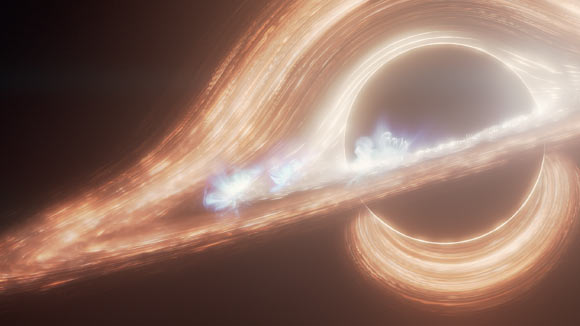Now Reading: Black Holes Could Serve as Nature’s Ultimate Particle Colliders: Study
-
01
Black Holes Could Serve as Nature’s Ultimate Particle Colliders: Study
Black Holes Could Serve as Nature’s Ultimate Particle Colliders: Study

Swift Summary
- New research by physicists from the University of Oxford, Johns Hopkins University, and the Institute of Astrophysics in Paris highlights that supermassive black holes can act as natural gravitational particle accelerators with energy levels in the range of tens to hundreds of teraelectronvolts (TeV).
- The collisions between free-falling particles and material plunging into a rapidly spinning black hole coudl potentially replicate or exceed phenomena seen in human-made supercolliders like the Large Hadron Collider.
- Such events might produce detectable signals on Earth, offering insights into dark matter and undiscovered basic particles.
- Black holes release high-energy jets powered by their spin and accretion disks; some particles escape during these processes while others fall into the black hole.
- Detection methods include observatories like IceCube Neutrino Observatory at the South Pole or similar detectors tracking cosmic phenomena.
- The findings could complement ongoing plans for next-generation supercolliders that may cost around $30 billion to construct over 40 years but are aimed at uncovering new physics.
indian Opinion Analysis
This groundbreaking study offers dual opportunities: advancing our understanding of cosmic phenomena while reducing dependence solely on constructing expensive terrestrial infrastructure.For India, which has invested considerably in space exploration and astrophysics, such research underscores a valuable area for academic collaboration. Establishing partnerships with institutions dedicated to detecting high-energy cosmic events could position Indian scientists to contribute meaningfully toward studying dark matter or beyond-standard-model physics.
The detection facilities mentioned present opportunities for India’s scientific agencies-like ISRO or TIFR-to expand their roles internationally. It also raises questions about balancing investments between building homegrown experimental setups versus tapping into nature’s own labs (like black holes). This alignment fosters not just scientific finding but positions Indian expertise globally.
























